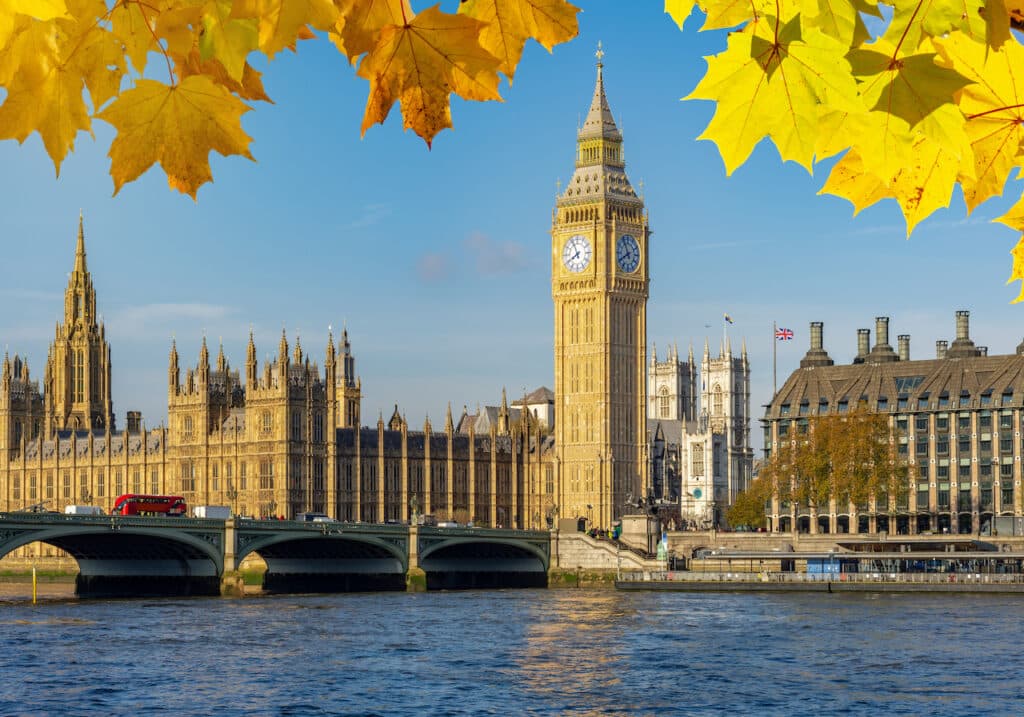Moving from the U.S. to the UK is an exciting adventure, but it also brings a host of practical questions—especially when it comes to managing your money. If you’re a U.S. expat, understanding U.S. to UK conversion, banking basics, and the best ways to move your funds across borders is essential for a smooth transition.
In this guide, we’ll walk you through everything you need to know about UK banking, exchanging USD to GBP, avoiding hidden fees, and timing your transfers to make the most of your hard-earned dollars. Let’s make your financial journey to the UK as seamless as possible.
Understanding UK banking basics for U.S. expats
Setting up your financial life in the UK starts with understanding how the local banking system works. While the UK and U.S. share many similarities, there are some key differences that can impact your day-to-day banking and U.S. to UK conversion needs.
Opening a UK bank account
Most UK banks require proof of address, identification (like your passport), and sometimes a UK phone number. As a U.S. expat, you may also be asked for additional documentation due to U.S. tax regulations (such as FATCA). Some banks, like HSBC and Barclays, offer international accounts specifically designed for expats, which can be opened before you arrive in the UK.
Types of accounts
- Current account: The UK equivalent of a U.S. checking account, used for everyday transactions.
- Savings account: Similar to U.S. savings accounts, but interest rates and terms may differ.
- International accounts: These can be helpful for managing multiple currencies and making U.S. to UK conversions easier.
Online and mobile banking
UK banks are generally very tech-friendly, offering robust online and mobile banking platforms. This makes it easy to monitor your accounts, transfer funds, and manage U.S. to UK conversions from anywhere.
U.S. tax considerations
Remember, as a U.S. citizen, you’re still required to report your foreign bank accounts to the IRS if your balances exceed certain thresholds (FBAR and FATCA rules). Keeping good records and choosing a bank familiar with U.S. expat needs can help you stay compliant.
Cheapest ways to exchange USD to GBP in the UK
When it comes to U.S. to UK conversion, getting the best exchange rate can make a significant difference in your finances. Here’s how to stretch your dollars further when converting to British pounds.
Currency exchange services
- Online money transfer services: Companies like Wise (formerly TransferWise), Revolut, and OFX often offer better rates and lower fees than traditional banks. These platforms are designed for international transfers and provide transparent pricing.
- Bank transfers: While convenient, banks typically charge higher fees and offer less favorable exchange rates for U.S. to UK conversions.
- Currency exchange bureaus: These are found in airports and city centers, but they often have the worst rates and highest fees. Use them only in emergencies.
Tips for getting the best rate
- Compare rates across multiple platforms before making a transfer.
- Avoid exchanging cash at airports or hotels.
- Consider setting up alerts for favorable exchange rates.
Avoiding high currency exchange fees and hidden costs
Hidden fees can quickly eat into your funds during U.S. to UK conversion. Here’s how to keep more of your money:
Watch out for:
- Transfer fees: Some banks and services charge a flat fee or a percentage of the amount sent.
- Poor exchange rates: Even a small difference in the rate can add up on large transfers.
- Receiving fees: Some UK banks may charge to receive international transfers.
- ATM withdrawal fees: Using your U.S. debit card at UK ATMs can result in foreign transaction and withdrawal fees.
How to minimize costs:
- Use services that offer mid-market exchange rates and low, transparent fees.
- Open a UK bank account to receive funds directly in GBP, avoiding double conversions.
- Consider multi-currency accounts (like those from Wise or Revolut) to hold both USD and GBP and convert when rates are favorable.
- Always read the fine print before initiating a transfer.
How to receive money from the U.S. while living in the UK
Receiving money from the U.S. doesn’t have to be complicated or expensive. Here are the most reliable options when you need to access your U.S. funds in the UK.
Direct bank transfers
You can transfer money from your U.S. bank to your UK account, but watch out for high fees and poor exchange rates. Some U.S. banks partner with UK banks to offer better rates—check if your bank has such arrangements.
Online money transfer services
Platforms like Wise, Remitly, and PayPal make it easy to send money internationally. They often provide better rates and faster transfers than traditional banks. For regular transfers (like salary or pension payments), setting up an automated transfer can save time and money.
U.S. checks and wire transfers
While you can deposit U.S. checks in some UK banks, processing times can be slow (sometimes several weeks), and fees may apply. Wire transfers are faster but can be costly.
Multi-currency accounts
These accounts allow you to hold and manage both USD and GBP, making U.S. to UK conversion seamless. You can receive USD, convert when rates are favorable, and spend in GBP.
Understanding exchange rate fluctuations and timing your transfers
Exchange rates between the U.S. Dollar and British Pound can fluctuate daily, impacting the value of your U.S. to UK conversion. Understanding these changes can help you make smarter financial decisions.
What causes exchange rate fluctuations?
- Economic data: Reports on inflation, employment, and GDP can move rates.
- Political events: Elections, policy changes, and global events can create volatility.
- Market sentiment: Investor confidence and speculation also play a role.
Timing your transfers
- Monitor the market: Use online tools or apps to track USD/GBP rates.
- Set rate alerts: Many transfer services let you set alerts for your preferred rate.
- Consider forward contracts: Some services allow you to lock in a rate for future transfers, protecting you from unfavorable shifts.
Ready to simplify your U.S. to UK taxes?
Navigating U.S. to UK conversion, banking, and tax requirements as a U.S. expat doesn’t have to be overwhelming. Our team of expat tax specialists is here to help you make smart financial decisions, avoid costly mistakes, and enjoy your UK adventure with confidence. Get in touch to get personalized tax support tailored to your unique situation.
Frequently Asked Questions
-
What is the best way to handle U.S. to UK conversion for regular monthly transfers?
Online money transfer services like Wise or Revolut typically offer the best combination of low fees and favorable exchange rates for recurring transfers.
-
Are there any tax implications for U.S. expats when transferring money from the U.S. to the UK?
While transferring your own funds isn’t usually taxable, you must report foreign bank accounts to the IRS if you meet certain thresholds. Always keep records for both U.S. and UK tax purposes.
-
How can I avoid hidden fees during U.S. to UK conversion?
Compare providers, use services with transparent fee structures, and avoid exchanging cash at airports or hotels where rates are poor and fees are high.
-
Can I open a UK bank account before moving from the U.S.?
Some banks, especially those with international branches, allow you to open an account remotely. Check with banks like HSBC or Barclays for expat-friendly options.
-
How do exchange rate fluctuations affect my U.S. to UK conversion?
Fluctuations can increase or decrease the amount of GBP you receive. Monitoring rates and timing your transfers can help you maximize your funds.

 Connect on LinkedIn
Connect on LinkedIn

